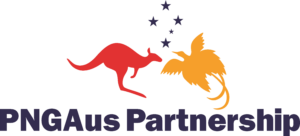In April and May 2025, IFPRI and its partners conducted a series of validation workshops aimed at testing, refining, and expanding the reach of the Food Security Simulator Papua New Guinea (FSS-PNG). In Port Moresby, Lae, and Goroka, hands-on workshops were conducted with twenty-four local researchers, academics, and policymakers. Organizations represented by attendees included DAL, FPDA, FAO, NARI, UNITECH, and the University of Goroka. Each two-day session was not only a training opportunity, but also a platform for collaboration and policy insight.
What Is the FSS-PNG?
The FSS-PNG is a powerful, Excel-based tool that allows policymakers, researchers, and development partners to simulate how changes in food prices, income, or preferences might impact household food security across Papua New Guinea. Built on the nationally representative 2023 PNG Rural Household Survey and rigorous food demand modeling, the tool generates easy-to-understand tables and graphs that show how consumption and diet quality might shift under different scenarios.
It’s fast, intuitive, and, most importantly, it’s designed to make real-time food security analysis accessible—even when time and resources are limited.
Workshops
Port Moresby (April 28–29)
Held at the Department of Agriculture and Livestock, in the first workshop participants were introduced to the foundations of food security and microsimulation, followed by an in-depth look at how the FSS-PNG works. The first day ended with hands-on simulations using real scenarios to explore food price shocks and income shifts.
On the second day attendees worked in groups to build and present their own policy simulations using the tool. The goal was to encourage creative, data-driven thinking about food security interventions. Feedback sessions helped identify refinements for the tool itself, ensuring it better fits the PNG policy landscape.


Lae (May 1–2)
The Lae workshop held at UNITECH University followed a similar format but the new workshop attendees helped bring in fresh insights to the process. As with Port Moresby, the first day focused on theory and practical examples of how to use the FSS-PNG. Participants were also encouraged to probe the underlying Excel coding, which went towards helping demystify how the simulator evaluates data.
On the second day, the guided group work culminated in presentations by groups of participants. The iterative process of working together helped deepen understanding and gave participants a sense of ownership over the tool and its future.

Goroka (May 5–6)
The final workshop took place at the University of Goroka. Like the earlier events, this session emphasized both the utility and adaptability of the FSS-PNG. For example, group simulations explored how hypothetical shocks — like a 25% increase in staple prices or a 20% income rise among poor households — might affect calorie intake and diet quality in rural PNG households.
In Goroka many participants had direct links to the university, as professors or students, and their questions dug into how the FSS-PNG could be translated as a teaching tool to help empower students in their economic learning. The final presentation session highlighted the ability of the tool to be used in policy framing for real-life situations—a key takeaway for any future use of the tool.


Why It Matters
These workshops accomplished two important tasks: helping users understand the FSS-PNG and allowing them to co-create the tool going forward. By working directly with the tool, participants helped surface bugs, suggest interface improvements, and explore new applications.
Key Outcomes
• Capacity Built: Participants, including students, analysts, professors, and many others, left the sessions confident in their ability to use the FSS-PNG.
• Refinements Identified: User feedback led to suggestions for improving interface clarity, expanding the set of simulated shocks, and making outputs even more policy friendly.
• Connections Strengthened: Collaborations sparked across institutions, including national ministries, universities, and development partners.
What’s Next?
Using the feedback from these sessions, the FSS-PNG development team will implement refinements and explore expanding the tool’s capabilities. Future updates will include additional modules to allow the simulation of non-food changes, including cash crops, and further detailed information on the underlying demographics of the sample.
In the meantime, participants are already applying what they learned. They are running simulations, generating insights, and contributing to a growing culture of data-informed decision-making in PNG.

